Buckle up Buckaroos, Tales from Track Center. The Dan Peters Story
Introduction
In my late teens I saw a film. As many do, but this one resonated with me more than all the rest. Let it ride, the Craig Kelly story. If you haven’t seen it please do. It’s the biography of one of Pro Snowboarding’s pioneers. A cinematographic masterpiece, a great soundtrack, and the story of Craig who’s life was cut short. All that aside it was a great story because Craig’s life was short and eventful. He lived just a few years after his pro career and moved on from his passion for Pro snowboarding into a more stable life as a Ski Patrol. If you haven’t seen the film, you should be able to guess by now how the film ends.
I would never compare myself to Craig, I was not the athlete, far from it. I was always an exceptionally average cyclist. Of course, I made up for that with an ability to understand how machines worked, a love of cycling, and a good head for organization. I was not the pro athlete, but I was the pro mechanic. Again, I must stress, not famous, not exceptional, not all that successful to be honest. One of my mentors is a man named Geoff Brown. Geoff was a world tour mechanic from 1988-2019 and pro-continental for a few years after. He’s done 22 tour de France. He was on US Postal Team and he has skeletons in the closet, lots of them. Now that is a successful career and a successful pro mechanic. In a twist of fate, Geoff now occupies the role I left at Cycling Canada.
I’m not Geoff and my career was a scant 11 years. But, I have just enough conceitedness to tell you about it. I think the things that I was a part of are interesting to the average cycling fan and at least five people told me that they liked my stories about airports. This will be the first part in six. I’ve given a good bit of thought to the story and Star Wars really comes forward as an example of how I could describe these six parts. In Star Wars we have A New Hope, the beginning and despite some hiccups it’s a tale of triumph and fighting against great odds to achieve something special (Parts one/two 2011-2016). The Empire Strikes Back, the middle and things get dark. Bad stuff happens and this is exactly what happened to myself, my colleagues, and the riders involved. I mean it, people die, folks are permanently disabled, A lot of people get fired. Seriously, don’t read part three or four. Return of The Jedi. This is the end of my story. We achieve incredible things. We blow up the death star again, there is great rejoicing, and I walk away into the sunset (5/6).
Chapter 1:
Women's Team Pursuit becomes an Olympic event.
Many things in my life lead up to becoming a team mechanic. Too many pieces fell into place to really make a point with my skill as a writer. A more succinct explanation is to give you context into how it became possible. The biggest and most important thing in my mind is the addition of a women’s team endurance event to the track cycling program at the Olympics. Everything that came after, at least for me, was a result of this.
The exact circumstances I’ll explain are to the best of my knowledge, I didn’t do any research. These are simply the events as I remember and understand them. Some time around 2006/2007, the Canadian government decided that as large and wealthy as our country is, we were not doing well on the world stage when it came to anything but hockey. Sure, we had success here and there but not in the way that we should have. Now, governments love bureaucracy and one of the best ways to exercise this is to give a pile of money to a branch of government and tell them to divide it up as best they can. The goal being to get more medals at the Olympics. Sport Canada was that branch of government and they stepped up with a program called Own the Podium. OTP as it’s known was responsible for creating a system to equitably divide up money between all sports in Canada and give each of those sports the mandate to get more medals! For cycling a man named Jacques Landry was put in charge of this mandate. Jacques will be remembered by some as a villain and by some as a hero. Nearly every single person I talk about in this story comes with the same disclaimer (except Mike Patton and Craig Deveer, those guys are gems). To every person I worked with, every other person was either good or evil. It’s odd how polarizing people were perceived in sport. Maybe not odd, but interesting. Regardless, Jacques was hired on by Cycling Canada just before the 2008 Olympics in Beijing and he was given one job. Get more medals. As was explained to me by Jacques, cycling has 18 medals at the games. 10 are in track cycling, 2 in BMX, 2 in MTB, and 4 in road. It was his argument that we should put the majority of our funding into track cycling because the shared resources, equipment and staff would generate the greatest chance of a medal or medals. A soigneur for track can work on a lot of track riders, a mechanic a lot of track bikes, a coach a lot of track riders, track wheels can go on a lot of track bikes. He put the eggs into one basket. We can debate the merits of this, and people did. More on that in part two. A lot more on that in part two and three actually. To be completely honest, a good amount of the infighting within the sport of cycling in Canada is because of this debate. This very thing that Jacques directed would end up being a battlefield between Cycling Canada and cyclists in Canada for over a decade.
Anyway, before I worked at CC a few important people got the ball rolling with this new injection of funding. Richard Wooles, Tanya Dubnicoff, Mike Patton, Sandy Gilchrist, John Evans, Steve Sleep, Sara Poutanen and Jen Turner all worked in the track program leading up to the London Olympics. The athletes were significant of course, they were the stars, but my story is from the point of the droids, just like Star Wars. I met this team of staff and team of riders in Los Angeles in December of 2011. To get my feet wet and for the head coach Richard to meet me. This was a training camp and an important one as it was leading into the London world cup a month later. The London WC was the test event for the games in the Lee Valey Velodrome, the same that they would race on that coming summer. The team camp went well, and the team liked me well enough to invite me to the race in January. It was here I met Mike and Tanya who are my dear friends to this day. As well as the team camp went, the race didn’t go all that well for me. Get enough drinks into me and I’ll tell you the story… Simply put, a group of riders pulled a prank on the 21 year old mechanic who had been worked to the bone, he didn’t take it well and yelled at the coach who had no idea what was going on. It was somewhat vindictive that the same group of riders was arrested for breaking into a bank the following day. Richard, the coach at the time never hired me back and I was not needed for the London Olympics. Fortunately for me, Tanya loved me. We were both born and raised Winnipeggers and got along well.
At the 2012 London games Canada won a single medal in Cycling. A bronze in the Women’s team Pursuit. Both Zach and Tara were unsuccessful in the Omnium. Catherine Pendral, the reigning world champion had a bad day out and Emily Batty broke her collar bone in training. On the road we brought a strong Women’s team with Clara Hughes headlining, but this again didn’t pay off. Although it was close. For the men’s road, we brought one Ryder but as it turns out we shouldn’t have. Another long story but simply put, Svein deserved the spot and didn’t get it. Controversial for sure. Svein is a good guy and I doubt he has ever forgiven Canada for that one.
The Rio quad begins
This relatively poor showing had a real impact on the following four years. Jacques vision and strategy paid off at least a little. 4-6 medals were possible across all able body disciplines but only track was successful albeit with a bronze. I don’t remember the context of para at that time but I think Shelly G crushed it!
That bronze medal was the justification for the continued investment into track cycling. Richard resigned and stayed in British Columbia with their provincial program. He planned this before the games and all knew. No surprise as he had two young children and commuting to LA was not ideal for their family. Tanya stepped up at the coach. Sandy who was the mechanic for the previous four years was kept on for a time to train me. He had a job with Specialized and track was a part time gig for him anyway. Mike Patton stayed on and Jen stuck around for a while. The year after any Olympics is a transition year and I would experience this three times. 2013, 17, and 21/22. I learned a lot that year and went to another world cup in Aguascalientes Mexico (A venue I would visit 6 times) as well as my first world championships in Minsk Belarus.
Mexico
In Mexico I remember just a couple of details. First, and most significant was Lance Armstrong going on Oprah and telling the world he was a cheat and a liar. We all know how that went. The second was a mistake by our staff in rider selection for a race. In track cycling team events. A team may register more riders for an event than can ride it in one heat, for substitutions of course. This can get tricky as you must alert the commissaires at least one hour before the start of a heat of any substitution. Our mistake as a staff was planning for a substitution, building strategy around this sub, getting the sub to warm up, and then take the line. Only to realize on the start line that we had not in fact made said substitution. One panicked look from the coach to Sandy, One panicked look from Sandy to the 21 year old mechanic, and one 21 year old mechanic sprinting back to the team pit. From the stands Jacques as well as he could, explained to our OTP rep that he didn’t know what was going on, but he knew mechanics sprinting was always bad. I alerted the rider who was not wearing kit or warmed up that she needed to take the start now! I grabbed her bike which had no wheels or gear on, riders and soigneurs helped her get dressed and we were able to start the race, albeit with a fine for delaying the program. It was Pan-Am champs so I’m sure we medaled in the end.
From Minsk with Love
Our trip to Minsk was interesting to say the least. It was also heartbreaking as most of our riders had a personal connection to a coach in BC named Jeremy Story. While we were in Minsk Jeremy took his own life. It should be obvious that a world championship is a stressful time, the prospect of winning the rainbow bands is a goal for every cyclist. The combination of this death, the change in coaching, and the pressure of worlds was a pressure cooker. Late one evening before the following days competition and after a training session we had received word from Canada of Jeremy’s passing. As staff we gathered in one of our hotel rooms and discussed the event and our plans to tell the riders. At this meeting were five of us. Tanya Dubnicoff, Mike Patton, Myself, Jen Turner, and one other. This other staff member will play a significant role in my story. I’ll speak about him as much as my own experiences and because he is still employed by Cycling Canada and in a position of power, I wish to protect his identity. We will call him Chris Eastwood. For context, as Star Wars is told from the perspective of the droids, my story is told from the perspective of Chris and myself. I would be the R2D2, just glue it back together and get on with it! Chris would be C3P0, This is not ideal, our chance of success is only 5%.
Between the staff it was decided that Tanya as the leader and coach would have to share the bad news. She accepted the responsibility immediately and made plans to sit the riders down and talk about it. Counseling from Canada was prepared, and Tanya brought the riders in for an impromptu meeting. This meeting was brief, difficult, and as a young man in an awkward situation very vivid in my memory now a dozen years ago. Tanya, as eloquently and considerably as she could, informed the riders that their friend, confidant, and longtime coach had taken their own life. A few words were spoken by the riders. Shock, and pain mostly. Each left the room one by one. In the end, the staff and the last rider sat there. I remember this the most vividly. This last rider Jasmin had far less interaction and report with Jeremy than the rest. The news of his death was of course shocking to her at 18 years old but without an emotional connection and not sure what to do she sat quietly with us until it seemed time that she could leave, then very timidly excused herself. The following days of competition went poorly for us. Tensions and emotions were high, competition was fierce, we finished the week without a result that showed the true value of that team. Other than these challenges there were a few memorable moments for me. One of our bikes was delayed by several days. Airlines eh. Laura Brown had to borrow a 1990’s era Corima track bike from the local Belarussian youth club. Fortunately, she received her race bike in time for competition, but it was funny to see her rolling around the track on this museum piece. Aaron Gate of New Zealand won the men’s Omnium, a rider I would have a report with the rest of my career. I experienced the taste of crab flavored chips for the first time, weird… Martin Irvine of Ireland won the men’s scratch race. A monumental result for the nation of Ireland and another rider who I would have a working relationship with for many years to come. Finally, the strangest interaction I would have that trip. Being pulled over by the cops.
One night, on the return from dropping a rider at the airport, Chris and I were pulled over by the police on the highway. To my amazement, at night, in the dark. This cop walked right into the middle of the unlit highway with his hand raised up. I swear to god, he walked into the middle of the highway, no lights or anything. Because I saw him, just in time, I was able to slow down and stop. He starts speaking to me in Russian, I have no idea what he is saying, he understands zero English of course. I hand him my passport, he looks at it, shrugs, tosses it back into the van. Literally tosses it and waives me on my way. The first time I was ever pulled over was at night in Belarus.
We all return to Canada ending the 2013 track season. In the weeks that followed our riders at that world championships expressed their displeasure with Tanya and her leadership. A difficult and controversial topic and in the end, Jacques made the decision to terminate Tanya’s contract. This would be the first of three times where a group of women’s team pursuit riders leveraged management to have their coach fired. In short order a man named Craig Griffin would be hired as Women’s endurance coach. Ian Melvin would be hired to build a men’s endurance squad and Erin Hartwell would be hired to build a sprint program for Canada. 2014 was an eventful year and the start of a renaissance for track cycling in Canada. This renaissance included a revolution as well. Taking money and focus away from road cycling in Canada is definitely a no-fly zone. Some folks like Jacques learned this the hard way.

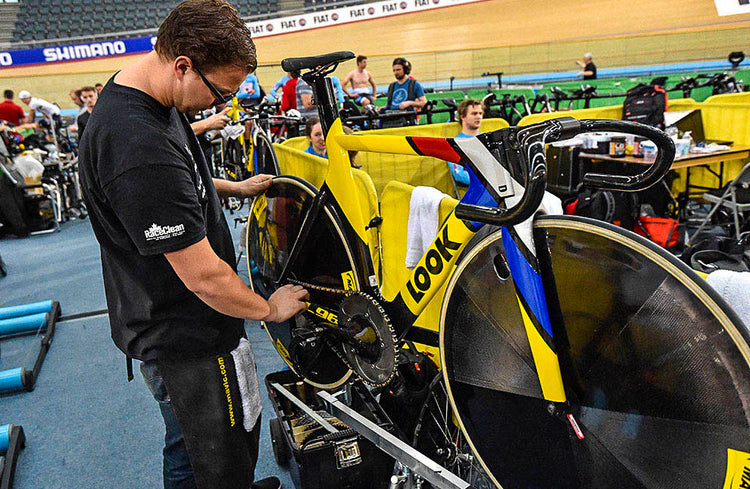

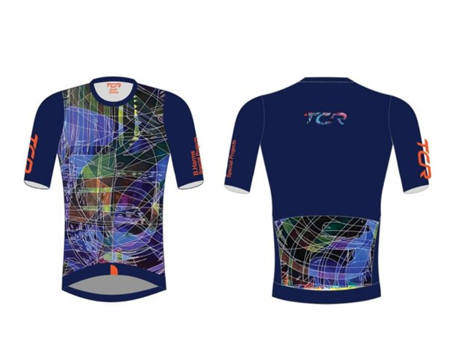
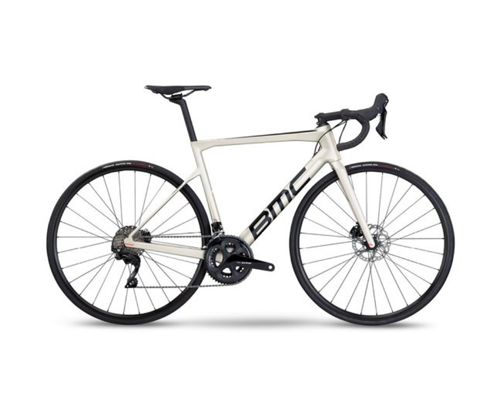
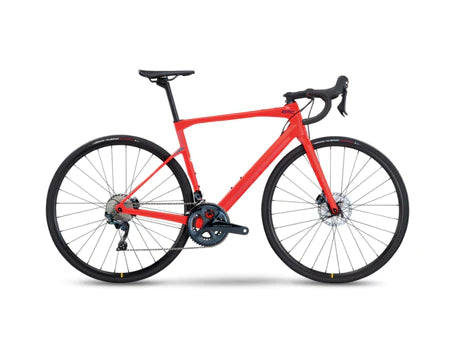

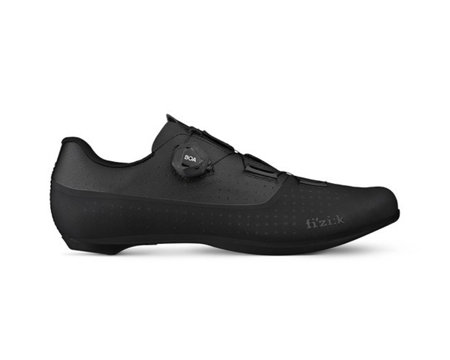
Can hardly wait to read the next chapter. Thanks for sharing Dan!
Great stuff Dan! Thanks for sharing and more please!
Great storytelling Dan! Thanks for sharing your behind the scenes experiences with us. Looking forward to the next instalment!